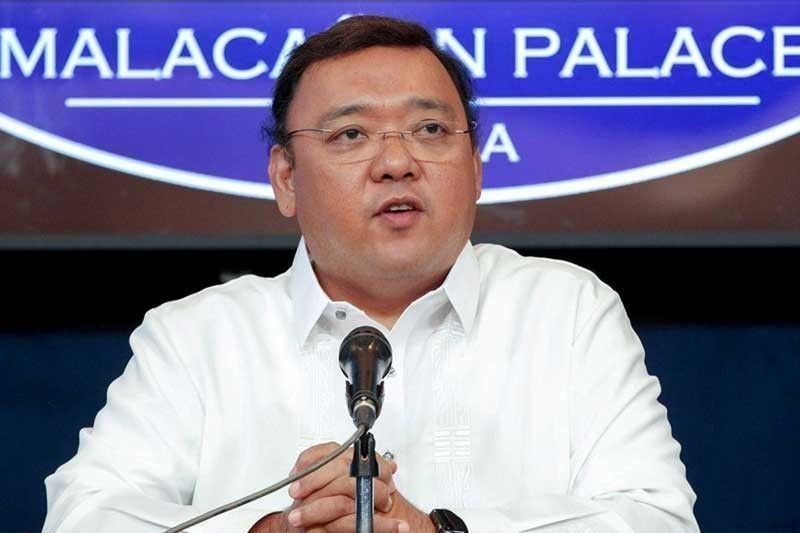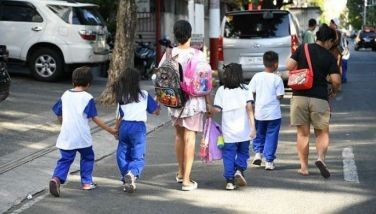Government set to review COVID data this week

MANILA, Philippines — The government will review the data on coronavirus disease 2019 (COVID-19) cases in Metro Manila this week to determine whether to adjust quarantine measures in the capital region.
Metro Manila, which accounts for about half of the COVID-19 cases in the country, was under strict community quarantine for more than two months, sidelining thousands of workers and forcing several businesses to close shop.
The government eased the lockdown restrictions this month to gradually reopen the economy while preventing the further spread of the virus, which has so far infected more than 29,000 persons in the country. Despite the rising number of infected persons in the region, the government decided to keep Metro Manila under the more lenient general community quarantine (GCQ) until June 30 due to availability of critical healthcare facilities.
“Well, in the coming week, there will be a preliminary review of data because by that time, a week will have passed and by then, we would determine whether it (Metro Manila) will remain under GCQ, or it will be relaxed further to MGCQ (modified general community quarantine) or it revert to modified ECQ,” presidential spokesman Harry Roque said at a televised public briefing last Saturday.
“All of these will be based on data, on science. We, the people, will decide what will happen to our places,” he added.
Roque previously revealed that Metro Manila, home to more than 12 million people, nearly reverted to the stricter modified enhanced community quarantine (MECQ) because of its case doubling rate.
“Metro Manila was even ‘pasang-awa (borderline)’ for GCQ. To qualify for GCQ or moderate risk, you need to have a case doubling rate of 7 (days); Metro Manila’s case doubling rate is 6.9,” Roque told ABS-CBN News Channel last Wednesday.
“So, if we were strict about it, Metro Manila would have been back to modified ECQ. But 6.9 is, you know, almost 7 and that’s why we classified (Metro Manila under) GCQ,” he added.
The government’s COVID-19 task force, however, decided to maintain Metro Manila’s quarantine status because it has available health facilities that can serve people who will get sick. Only 30 to 40 percent of the capital region’s isolation facilities have been filled up, Roque said.
Other areas that are under GCQ are Isabela, Nueva Vizcaya, Quirino and Santiago City in Cagayan Valley; Aurora, Bataan, Bulacan, Olongapo, Tarlac in Central Luzon; Cavite, Laguna, Batangas, Rizal and Quezon in Calabarzon; Occidental Mindoro in Mimaropa, all in Luzon; Bohol, Cebu province, Negros Oriental, Siquijor, Mandaue City, Lapu-Lapu City and Talisay City in the Visayas, and Davao City and Zamboanga City in Mindanao.
Cebu City reverted to the strictest enhanced community quarantine because most of its critical healthcare facilities have been filled up.
Roque reminded the public to go out of their homes only when necessary, observe safe distancing, and to wash hands frequently.
“We also appeal to our local officials. If cases in their areas, barangays, zones, buildings, roads or subdivisions rise, they can impose lockdowns and they should not hesitate to do so. If the infections spread, we would have a bigger problem,” he added.
At the same public briefing, Roque said the government would prioritize the poorest sectors in the giving of emergency aid.
“We are prioritizing the poorest so the distribution of the second tranche of SAP (social amelioration program) has started and many have received (aid). We then implemented the giving of salary subsidies to small and medium enterprises and loan guarantees for small and medium enterprises,” Roque said.
“We will see how we can help the aviation industry. We know that many families rely on the aviation industry for their livelihood. But for now, our priority is the poorest households and we want to ensure that they will eat three times a day,” he added.
Members of the Air Carrier Association of the Philippines have asked the government for financial assistance, saying they have lost billions in revenues because of the pandemic.
- Latest
- Trending




























